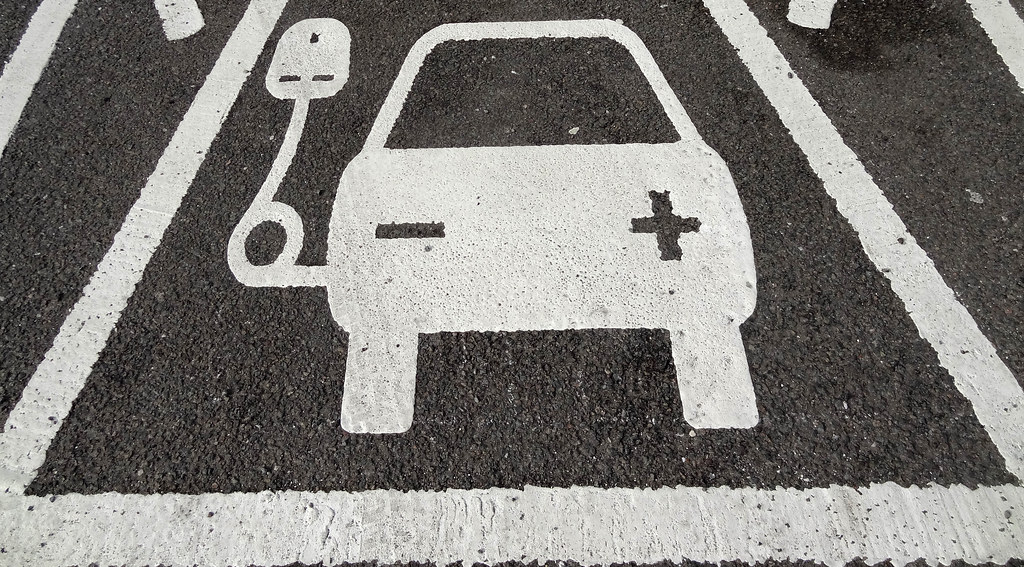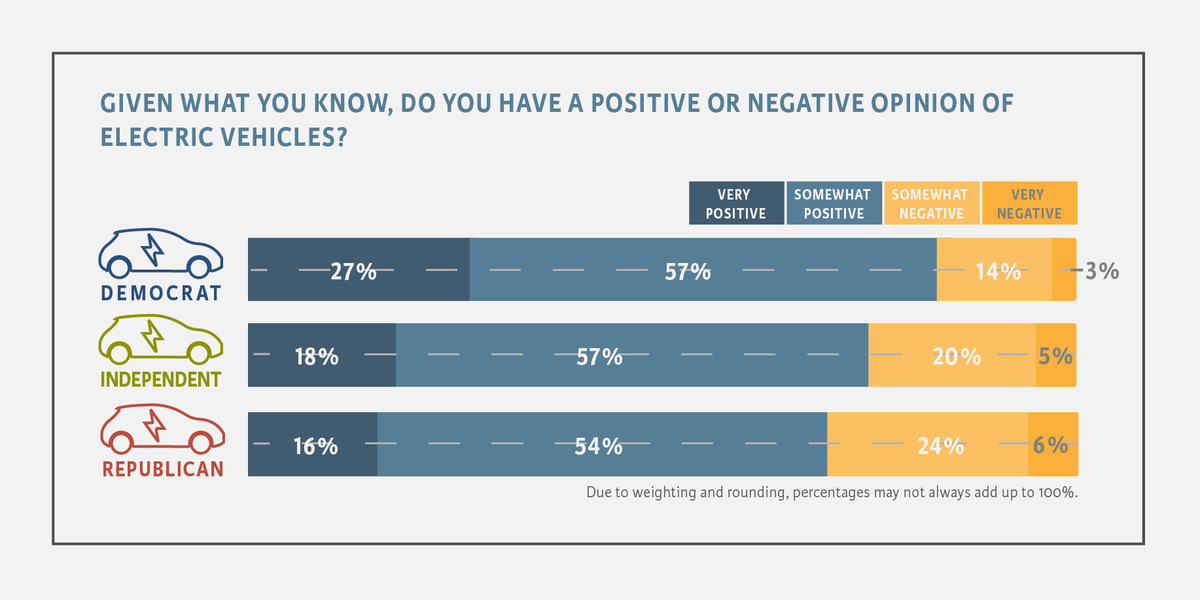The vast majority of Americans have a positive impression of electric vehicles (EVs), according to a newly released nationwide survey of registered voters by Climate Nexus.
The poll, conducted in partnership with Yale University’s Program on Climate Change Communication and George Mason University’s Center for Climate Change Communication, finds that 77 percent of American voters have a positive opinion of electric cars. This strong majority carried across all demographic groups, with seven out of every 10 self-identified Republican voters viewing electric vehicles positively.
While the overall impressions are positive, the poll also reveals some gaps in awareness about the electric car market and EV technology. Only 18 percent of respondents claimed to have seen, read, or heard “a lot” about electric vehicles, and more than one-quarter answered they had heard “not much” or “nothing at all.”
This information void allows groups that are threatened by the potential of electric cars — like oil producers and refiners — to spread misinformation about plug-in vehicles in an effort to trick Americans into thinking that these cars are only for the rich or impractical for most use.
Groups in the Koch network have been consistently spreading false talking points by funding deceptive reports and studies and planting dozens of op-eds and commentaries across a number of conservative media outlets.
Still, even with this relatively low level of awareness, nearly half of American voters surveyed said they were either very likely (12 percent) or somewhat likely (32 percent) to consider an electric vehicle for their next car purchase or lease. These figures largely echo — with some distinctions in how they were framed — the findings of a survey by AAA released last year that found that one in five American drivers wanted their next car to have a plug instead of a tailpipe.
The Climate Nexus poll also revealed the importance of incentives in converting this growing interest in EVs into increased market share. The federal electric vehicle tax credit proved popular across party lines, with nearly three-quarters of American voters overall (and 71 percent of Republican voters) claiming that a $7,500 tax incentive would make it more likely for them to purchase an electric vehicle.
Despite its bipartisan popularity, that tax credit is facing a persistent coordinated attack by the Koch network and other oil interests, who understand its importance in helping develop the new market.
While incumbent oil interests often present these EV incentives as expensive government handouts, the EV tax credit added up to $670 million in 2017 (the last year that data is available), while subsidies to the oil and gas industry total more than $4 billion every year. Those subsidies for oil and gas come despite already having benefited from decades of support from the federal government.
According to polling data, the American public sees the EV tax credit as an important and effective way to help support a new technology that brings immediate benefits to public health by reducing air pollution and climate impacts and represents an important solution to addressing climate change.
Main image: “I’m Positive I Plugged it in” Credit: Yercombe, CC BY–NC 2.0
Subscribe to our newsletter
Stay up to date with DeSmog news and alerts









